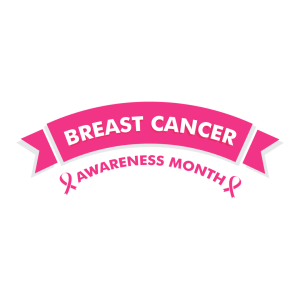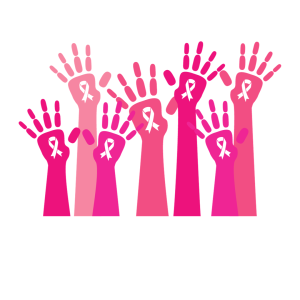Breast Cancer Awareness Month: Understanding the Impact on Oral Health

Breast Cancer Awareness Month is an annual campaign aimed at raising awareness about breast cancer, its prevention, early detection, and treatment. While breast cancer primarily affects the breast tissue, it is important to recognize that this disease can have various impacts on overall health, including oral health. In this blog post, we will explore the connection between breast cancer and oral health, highlighting the potential effects on teeth and gums.
Understanding Breast Cancer.
Breast cancer is a malignant tumor that develops in the cells of the breast. It predominantly affects women but can also occur in men. The disease can spread to other parts of the body through the lymphatic system or bloodstream.


Oral Health and Breast Cancer:
Breast cancer and its treatments can have several implications for oral health. These may include:
1. Xerostomia (Dry Mouth):
Xerostomia, or dry mouth, is a common side effect of chemotherapy and radiation therapy used to treat breast cancer. These treatments can damage salivary glands, leading to reduced saliva production. Saliva plays a crucial role in maintaining oral health by neutralizing acids, washing away food particles, and preventing tooth decay. When saliva production decreases, the risk of dental problems such as cavities, gum disease, and oral infections increases.
2. Gum Disease:
Breast cancer patients may experience an increased risk of developing gum disease (periodontal disease). This could be due to weakened immune systems resulting from cancer treatments or hormonal changes associated with breast cancer itself. Gum disease can cause symptoms like swollen or bleeding gums, bad breath, receding gums, and tooth loss if left untreated.
3. Osteonecrosis of the Jaw (ONJ):
Osteonecrosis of the jaw is a rare but serious condition that can occur as a side effect of certain medications used in breast cancer treatment, such as bisphosphonates and denosumab. ONJ is characterized by the death of jawbone tissue, leading to pain, swelling, infection, and even tooth loss. It is important for breast cancer patients to inform their healthcare providers about any dental procedures they may undergo to minimize the risk of developing ONJ.
4. Taste Changes:
Some breast cancer treatments can cause alterations in taste perception, leading to a metallic or bitter taste in the mouth. This can affect appetite and overall oral health by influencing food choices and nutritional intake.
While breast cancer treatment can pose challenges to oral health, there are steps that patients can take to minimize potential complications:
Maintaining Oral Health during Breast Cancer Treatment:
1. Regular Dental Check-ups:
Before starting cancer treatment, it is advisable to visit a dentist for a comprehensive oral examination. This allows the dentist to identify any existing dental issues and provide appropriate treatment before initiating cancer therapies.
2. Good Oral Hygiene:
Maintaining proper oral hygiene practices is crucial during breast cancer treatment. Brushing teeth twice a day with a soft-bristle toothbrush and fluoride toothpaste, flossing daily, and using an alcohol-free mouthwash can help prevent dental problems.
3. Saliva Stimulation:
To combat dry mouth, breast cancer patients can try stimulating saliva flow by chewing sugar-free gum or sucking on sugar-free candies. Additionally, staying hydrated by drinking plenty of water throughout the day can help alleviate dry mouth symptoms.
4. Communication with Healthcare Providers:
Open communication between breast cancer patients and their healthcare providers is essential. Informing your oncologist and dentist about ongoing treatments and any dental procedures planned can help them coordinate care effectively and minimize potential complications.
Breast cancer not only affects the breast tissue but also has implications for oral health. Understanding these potential impacts is crucial for breast cancer patients as they navigate their treatment journey. By maintaining good oral hygiene practices, seeking regular dental check-ups, and communicating with healthcare providers, individuals can minimize the oral health challenges associated with breast cancer treatment.
